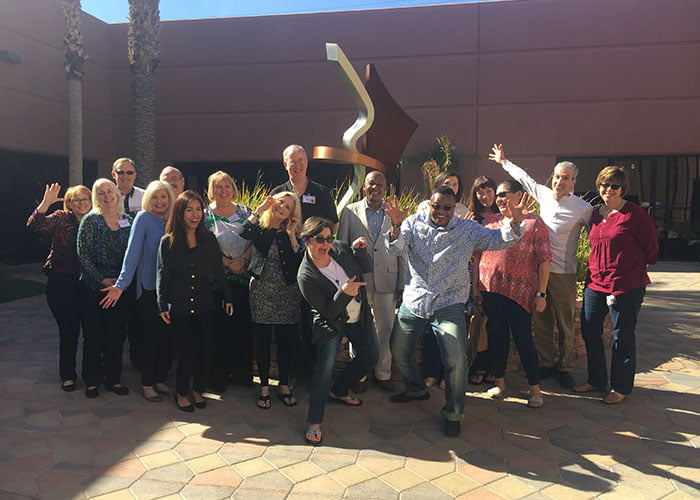A question often asked during our trainings is, “What do we do when the client wants to focus on a problem?”
Crafting bold, provocative, positive questions is at the heart of an appreciative approach and its power lies in the unconditionally positive question. Why? Because it is not enough to know what you don’t want (the problem or complaint), it is more important to know what you do want.
We often think what we want is the opposite of what we don’t want. That’s a good place to start; however, does that truly capture the texture of what is really desired? What is the ideal?
Dr. Cheri Torres draws up a really useful matrix to help practice the muscle of reframing problems into appreciative topics. Here is our reworking of her reframing matrix:
Problem → Impact of the Problem → Desired Outcome → Best OutcomeSuppose, for example, a theoretical client recently complained of being tired. The challenge was to be able to frame up a topic for coaching that would elevate and enlivened her, rather than becoming mired in the problem and its mere opposite. PROBLEM DESIRED OUTCOME (Absence of the Problem) |
What problems do you (or your client) have that may be re-framed into appreciative topics using the matrix above? What other exercises have you found helpful to help yourself (or others) flip the script from negative to positive?
Please share your thoughts and ideas with us on the Center for Appreciative Inquiry’s Facebook, Twitter, or LinkedIn pages.
Enjoy this exercise? If so, please join us for our 5-day Appreciative Inquiry Coaching Training (AICT) where we teach and demonstrate how Appreciative Inquiry can be used to engage in generative conversations with others. This advanced-level certification course will deepen your ability to identify, nurture and sustain the positive core with clients, as well as, within members of a team, department, organization, and community.
Two AICTs scheduled for 2017 – Cape Town, South Africa and San Diego, California.


Add your comment now using your favorite social account or Click Here To Login
